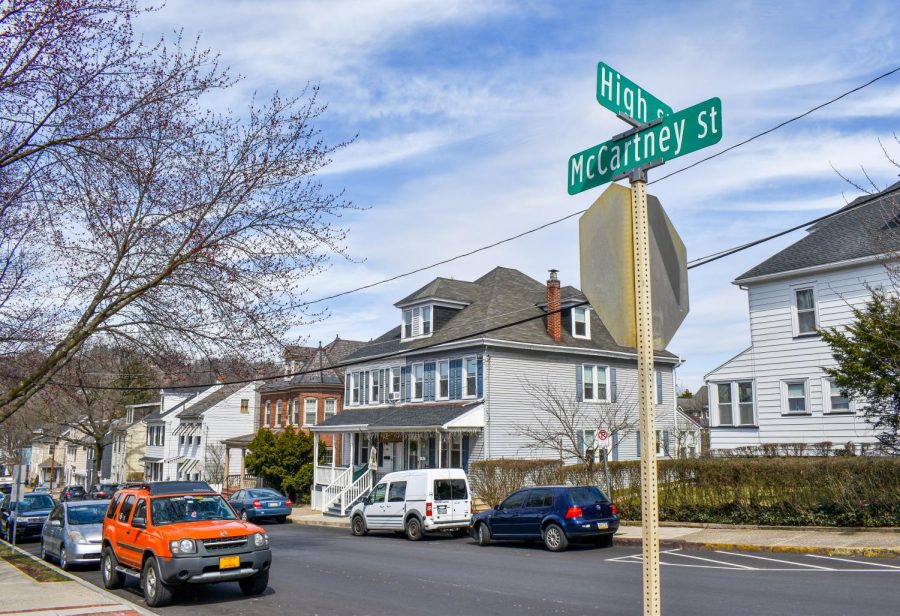Some rising seniors argue the college did not adequately communicate to them that all students who signed up for the off-campus housing lottery would not actually be guaranteed an off-campus house. After the lottery for these houses last Friday, students that expected to get a place and did not were forced to either find a dormitory or a private apartment to lease for the upcoming school year.
This year, there were 45 groups of seniors that matched and were eligible for a campus-owned, off-campus house, and only 30 houses were available.
“We saw increased interest from groups of all seniors for college off-campus specifically which led to some seniors not being able to select an off-campus house/apartment,” director of Residence Life Grace Reynolds wrote in an email. “Unfortunately, there isn’t always a match between supply and demand for certain types of housing during the lottery.”
Bernadette Russo ‘24, Sarah Murphy ‘24 and Melanie Carr ‘24 have planned to live off campus together since freshman year. Russo said that not getting a house was never even a consideration.
“Everyone that we have known who’s either alumni or in the grade above us has been able to secure a campus-owned house,” Russo said. “I feel like there wasn’t really a doubt in our mind if we’re gonna get a house.”
According to an email from Reynolds, all seniors who were interested in off-campus, college-owned housing last year got it. There were a few “3 person houses remaining that were then selected by rising juniors,” she wrote in an email.
Zubair Ali ‘24 pursued college-owned off-campus housing this semester because it was the most financially responsible decision and would offer him and his two roommates the chance to live together in their own space.
“All throughout my college experience, seniors typically lived in houses. And before I graduated college, I really wanted to experience living in my own space in that way,” Ali said.
The order in which groups got to pick their college-owned, off-campus house in the housing lottery was randomly assigned. Both Russo and Ali’s groups of seniors got late times, and once they were able to pick a house, none were available.
“It felt like a slap in the face, getting our time,” Murphy said. “And then the lottery closed before I could even go in. They literally shut off access and kicked me out of the site.”
Olivia Zoretic ‘24, who was hoping to live with Melina Panagakos ‘24 in one of the two-person houses, did not even get an assigned time. Instead, after they matched as roommates, Zoretic got an email from senior director of Residence Life Julie A. Mulé stating that based on the high demand from current sophomores and juniors, the school was not “able to include” them in the two-person lottery event. Mulé instead encouraged them to find another roommate in a day so that they could enter the three-person lottery.
“We had a day and a half to find a person. It’s ridiculous. How can anyone be expected to do that?” Zoretic said. “I know, it’s hard because you want to give equal opportunities to different classes, but with off-campus housing, I feel like the priority should be given to seniors.”
Each of the seniors agreed, however, that the most frustrating aspect wasn’t the actual loss of a house, but what they perceived as a lack of communication from Residence Life throughout the entire process.
“We were never told there was a possibility that you could not rent a house,” Russo said. “And I was talking to Julie [after we didn’t get a house] who said that in a normal year, not everyone gets a house. And I actually had no idea that that happened.”
Russo heard from Mulé that some of the reasons for the increase in demand for houses this year were a larger class of fifth years and more underclassmen living in Monroe houses where seniors typically live.
Mulé did not respond to a request for comment.
“There could have at least been a courtesy of them being like, ‘Okay, we’re anticipating way more kids in the lottery,’” Murphy said. “There was no communication. It honestly felt humiliating.”
After the lottery picks, many of the 30 students who were left without a house tried to get into contact with the school, only to be met with silence.
“There was no real solid support system. And it wasn’t until later … that I finally got concrete answers,” Ali said. “There was a long period of time where there was no communication, and it was just extremely quiet.”
“I have had so many administrators at the school look me right in my eyes and be like, ‘You guys are our top priority. We care about you’ … and then to just be like, blatantly ignored by multiple different contact points. It is ignorance under the guise of innocent attempts to be better, and at worst, it is deliberate negligence,” Murphy continued.
President Nicole Hurd said that she is aware of the situation and working on a solution.
Russo, Murphy and Carr were able to get released from the school to live in a private apartment that they found. Yet they did not feel as though their good fortune was universal.
“I am hoping that they released a lot of people, but I don’t think that’s the case,” Murphy said.
“It’s something that we all as seniors deserve to experience, that personal responsibility of taking care of your own space,” Russo said.
Disclaimer: Culture Editor Bernadette Russo ’24 did not contribute writing or reporting.




























































































































